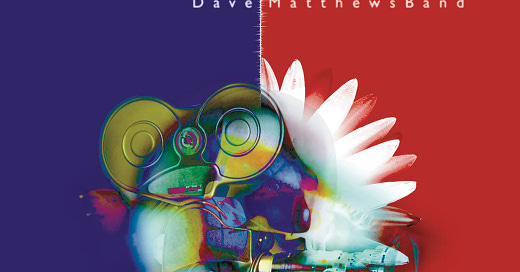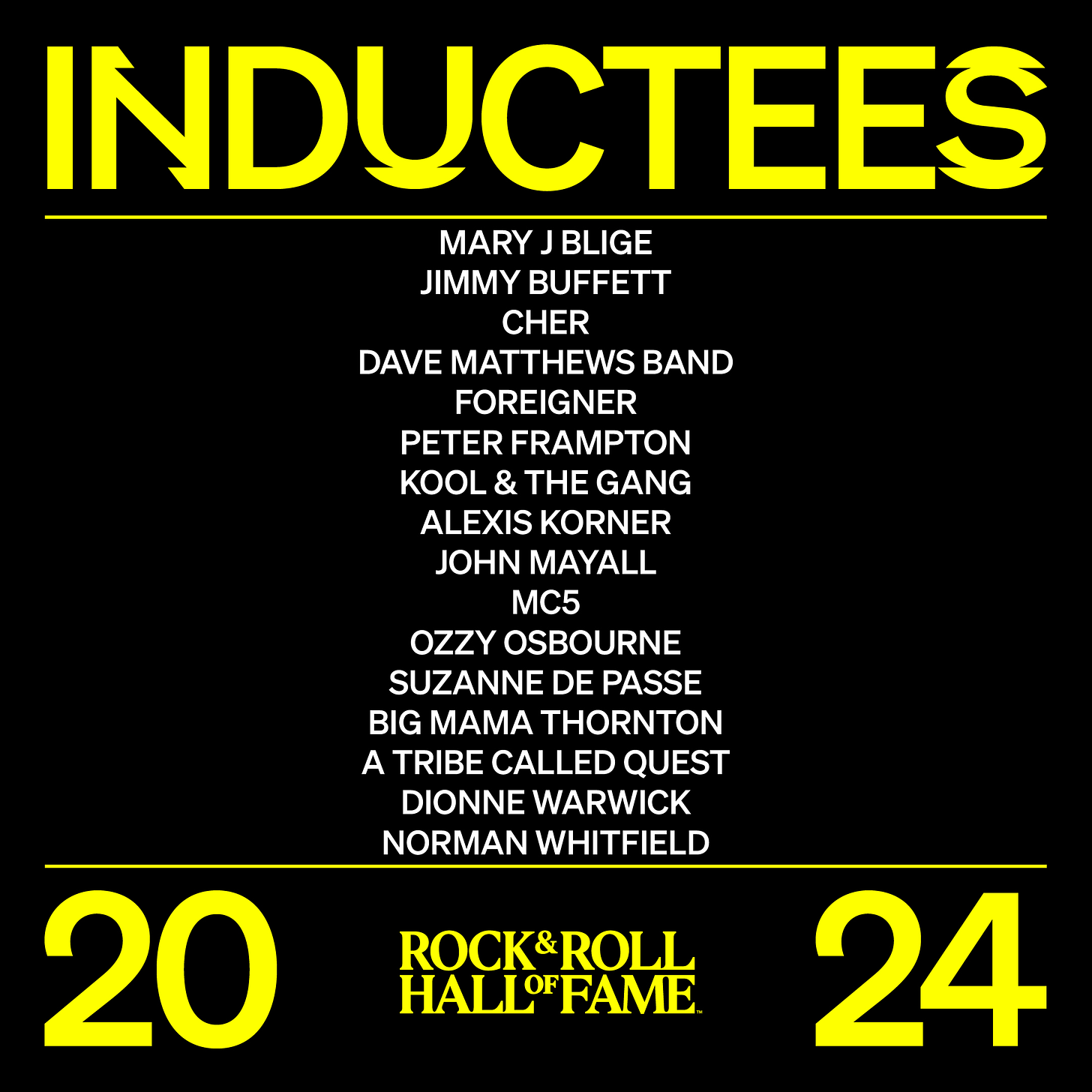You're forgiven if you happened to miss the announcement of the Rock & Roll Hall of Fame Class of 2024 on Sunday night. The big news arrived at the outset of American Idol, the long-running televised musical competition that's aired on ABC since 2018. ABC bought the rights to air the Rock & Roll Hall of Fame induction in 2023, paving the way for this exercise in seamless corporate branding: the Rock Hall is an asset in ABC's portfolio, one that could possibly raise and expand another asset's profile in hopes a corporate tide rises all boats.
The positioning of the RRHOF Inductees announcement on American Idol also hammers home how the Hall has completed its metamorphosis into the Popular Music Hall of Fame, extending its purview far beyond the big beat explosion of the mid-20th Century. If it was going to maintain and expand its audience in the 21st Century, the Hall was always going to have to choose which path to follow: whether to document rock & roll's big bang or to explore its outer reaches, where the connections to the music's origins are tenuous or even nonexistent.
Long ago, the Hall chose to celebrate " the sound of youth culture," a phrase designed to echo Motown's early slogan of "The Sound of Young America." A sensible move, really, as it places the Hall outside strict stylistic or chronological boundaries, allowing the organization to reinvent itself for generations much younger than the Baby Boomers that founded the institution in the 1980s. So, why does this year's RRHOF class not feel especially youthful?
It could be that a fair number of the inductees are either retired, dead, or on farewell tours, such as Foreigner, who is touring with a lineup that not a single member that was with the band back in their glory days. Foreigner is one of a handful of acts that belong to a conventionally classic rock contingent, a rank that also includes Peter Frampton, Ozzy Osbourne, and MC5. Frampton is managing a progressive muscle disorder well enough to continue to play concerts—he sounds gleeful and game on Frampton At Royal Albert Hall, a recent release commemorating a 2022 homecoming show—Ozzy is effectively retired due to health issues and Brother Wayne Kramer died earlier this year, leaving drummer Dennis Thompson as the only surviving member of the MC5.
Death hits other inductees, too. Phife Dog died just prior to the release of A Tribe Called Quest's superb 2016 farewell We Got It From Here…Thank You 4 Your Service, Dave Matthews Band revamped their approach after the accidental 2008 death of saxophonist LeRoi Moore and Jimmy Buffett died last September. Unlike Tribe and DMB, Buffett wasn't on the 2024 ballot and unlike his fellow "Musical Excellence" inductees MC5 and Dionne Warwick, he never made it to any previous ballot. Buffett's induction is deserved—his influence is deep, pervasive and lasting—yet it's odd to see him as part of this year's Class, particularly since the Hall is intent on blurring the boundaries that distinguish "Performers," "Excellence" and "Influence." Those categories are delineated on the website https://rockhall.com/2024-inductees/ but on all promotional material, the inductees—including Suzanne De Passe, recipient of the Ahmet Ertegun Award—are presented in strict alphabetical order, suggesting there's no separation within the hall.
Muddying the waters in this fashion seems to be a deliberate move, a way to maximize the number of artists that can call themselves Rock & Roll Hall of Fame inductees and to guarantee a varied list of stars to play at the induction ceremony that remains the Hall's flagship event. It helps maintain and expand a brand, even if it invariably dilutes the original intent of the Hall to preserve and celebrate cacophony of rock & roll in the mid-20th Century. Too often this criticism degenerates into bitching about what really is and what really isn't rock & roll—shades of "Wibbling Rivalry," the legendary interview tape from a squabbling Oasis, who sadly weren't inducted this year (they were among the five acts I voted for on my ballot)—which is a tired argument. A better conversation would be: is there an audience for a Rock & Roll Hall of Fame who prioritizes legacy brands?
As an institution the Hall still does plenty of good work and the board does usher worthy acts into the "Influence" and "Excellence" sections, as in this year's inductions of Big Mama Thornton and the sublime Norman Whitfield. These inclusions don't offset the creeping drabness of the collective class. Maybe one of the problems is that the ballot is overloaded with dutiful lifers, the kind of acts that earned their due by never going away. Dave Matthews Band hit cruising altitude late in the 1990s and continues to glide through amphitheaters to this day, nearly thirty years after their debut album Under the Table and Dreaming. Frampton faced his share of stumbles but he kept working, engendering goodwill within the industry by taking such supporting gigs as playing guitar with his old pal David Bowie in 1987. Again, Foreigner have proven that they don't even need an original member to pull crowds decades after they ruled the FM airwaves, proof positive that a brand can survive the disappearance of the musicians who made and recorded the music.
These kinds of inductions suggests what currently matters to the Rock Hall matters is not the messy particulars of history, whether its period details that don't fit a conventional narrative or unruly rocerss who can only be embraced once they've left this earth. Instead, they're honoring endurance, not so much celebrating survivors as those who managed to use the game to their advantage. In that sense, it's a bit of a wonder that Lenny Kravitz didn't get the nod this year, as he represents perhaps the culmination of this view of rock & roll history: his discography is nothing but sound and style, rock moves stripped of context and meaning, a Disneyfied rendition of rebellion. He's the poster child for where the Rock & Roll Hall of Fame is heading.





